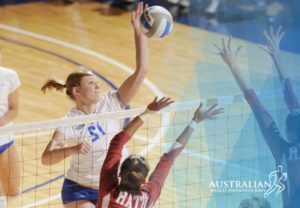Have you recently experienced an adductor muscle injury? Are you struggling to find effective treatment options? Physiotherapy may be the answer you’ve been looking for.
Adductor muscle injuries, also known as adductor muscle strains or tears, can be painful and debilitating. These injuries commonly occur in athletes who participate in sports that require repetitive movements or sudden changes in direction. Proper treatment is crucial to ensure a full recovery and prevent further damage.
Physiotherapy has proven to be an effective and non-invasive approach to treating adductor muscle injuries. By targeting the underlying causes of the injury and addressing muscle imbalances, physiotherapy can help you recover faster and regain full functionality.
What are adductor muscles?
There are five major adductor muscles in your body. The pectineus, adductor brevis, and adductor longus are three short adductor muscles that begin in your pelvis and extend down your thigh bone. The gracilis and adductor magnus are two lengthy adductors that begin in the pelvis and stretch to the knee.
Your adductor muscles’ primary purpose is to draw your legs together. You also use them a lot in sprinting and certain ball sports. Tendon inflammation or aggravation at their bone connection might develop. This can be the result of a previous injury, such as a groin strain or tear, or it can be the result of overuse.
What is an adductor muscle strain?
An adductor strain is the tearing of one or more muscles in the adductor group located in the groin area. An adductor muscle strain can range from a partial tear to a total rupture, and it can substantially impact athletic performance and daily life.
Common causes of an adductor muscle strain
An adductor muscle strain is most typically produced by a sudden contraction of the adductor muscles, which can happen while running, changing direction, or kicking. Footballers, hockey players, sprinters, and gymnasts are frequently affected by adductor muscle strains.
There may be a single occurrence that causes harm, but most injuries occur gradually over time.
Common symptoms an adductor muscle strain
You will feel pain at the top of your adductor muscles in your groin. This discomfort may radiate down your leg or be felt at a specific place in your groin region when you touch your pelvic bone.
You may experience pain while exercising or participating in sports, and you may have difficulties jogging. This will be exacerbated by sprinting, changing directions, and kicking. When you squeeze your legs together against resistance, you will feel discomfort.
Physiotherapy treatment for adductor muscle injuries
Stretching during the acute phase, according to some experts, may worsen the injury and lead to a chronic lesion. Controlling muscular spasms is critical for rehabilitation. To treat spasms, we use different modalities, which may include ice and gentle massage and dry needling.
We initiate passive range-of-motion (PROM) exercises when patients can perform them without experiencing any pain.
Active muscular workouts can gradually progress from isometric contractions without resistance to isometric contractions with resistance, and finally to dynamic activities when tolerated with little or no pain.
Strengthening the abdominal and hip flexor muscles is an important element of groin injury recovery. One highly effective functional workout that can help in this regard is coactivating your abdominal and adductor muscles.
We gradually increase the number of repetitions to 30–40 to improve the endurance of your adductor muscles and avoid possible injuries. That’s because tired muscles and tendons are more vulnerable to injury, so you need to work your way up slowly.
Proprioceptive exercises, stretching, and hydrotherapy may also be included in your rehabilitation program. While heat and support bandages may be advised after a few days.
How to avoid adductor muscle injuries
- In the early stages of discomfort, applying ice to the area may help to relieve some pain and inflammation. Wrap the ice in a towel to avoid direct contact with your skin.
- Avoid actions that make your discomfort worse until you see your physiotherapist.
- Avoid general strengthening exercises like squats and lunges until you see your physiotherapist.
- Stay active while avoiding aggravating activities.
- Have physiotherapy to help your joints, ligaments, and muscles function at their best.
- Maintain good physical health, and your physiotherapist will continue to monitor your condition. After your adductor muscle strain has healed, you will be free to continue your normal activities without fear of further flare-ups.

Final thoughts on physiotherapy for adductor muscle injuries
If you’re dealing with an adductor muscle injury, don’t underestimate the power of physiotherapy. With the right exercises, stretches, and treatments, you can heal faster, prevent future injuries, and get back to doing the activities you love.
So don’t let an adductor strain or tear hold you back; seek out the expertise of a physiotherapist and get back in the game stronger than ever!










